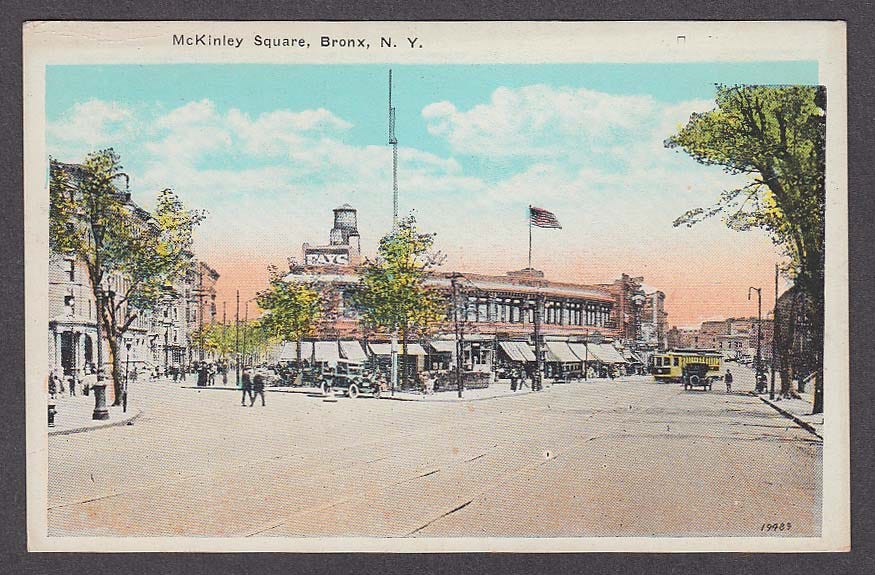Diary: Ian Frazier, Trotsky in the Bronx
McKinley Square was about ten blocks from the Trotskys’ place at Vyse and 172nd. Postcard from the 1910s
In the early part of the twentieth century, the Bronx's recently-built subway lines and abundance of new apartment buildings made it a popular destination for home-seekers. The front-stoop Bronx of fond memory had just begun when Leon Trotsky, the Bolshevik leader, his wife, Natalia Sedova, and their sons, Lev, who was eleven, and Serge, who was nine, arrived in New York City on January 13, 1917. They came on a Spanish ship; Spain had just deported them. The United States had been their default choice because the only European countries who would accept the dangerous revolutionary were ones that wanted to imprison him. A representative of the Hebrew Sheltering and Immigrant Aid Society met the Trotsky family at the pier. They rented a fifth-floor apartment at 1522 Vyse Avenue in the Bronx, just east of Crotona Park and a few blocks from Charlotte Street. The family could not believe how luxurious their place was. When Mr. Trotsky got a call, no small boy had to run from the candy store and yell up the stairs. For a rent of eighteen dollars a month, as he remembered in his autobiography,
that apartment … was equipped with all sorts of conveniences that we Europeans were quite unused to: electric lights, gas cooking-range, bath, telephone, automatic service-elevator, and even a chute for the garbage. These things completely won the boys over to New York. For a time the telephone was their main interest; we had not had this mysterious instrument either in Vienna or Paris.
In Manhattan, Trotsky gave speeches to socialist organizations and immediately fell into disputes with his American fellow leftists, for whom he had contempt. And in the contempt department, no one could out-contempt Trotsky. He described a prominent rival named Hillquit as “a Babbitt of Babbitts … the ideal Socialist leader for successful dentists.” Because of all the work Trotsky did, writing articles for Noviy Mir (“New World”), a socialist paper with offices on St. Mark’s Place, he had no time to take in the city’s attractions. Later he said he regretted that. About two months after he arrived, the February Revolution overthrew Tsar Nicholas II, and orders of exile against people like Trotsky were rescinded. The family made immediate plans to return to Russia. On March 26, fellow Communists gave him a farewell party at a casino in Harlem, where he made an “electrifying” farewell speech, according to Emma Goldman.
Keep reading with a 7-day free trial
Subscribe to Book Post to keep reading this post and get 7 days of free access to the full post archives.


